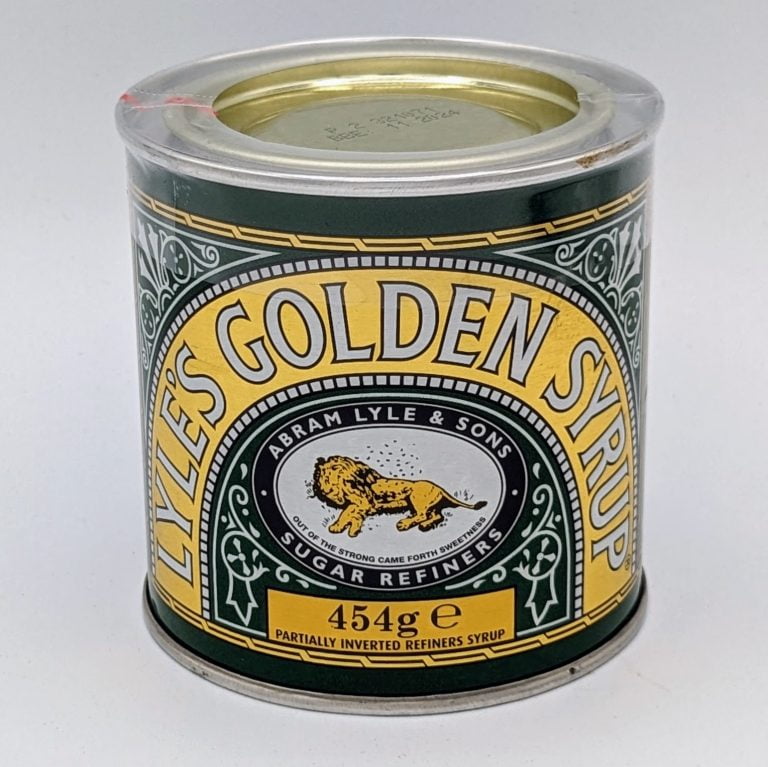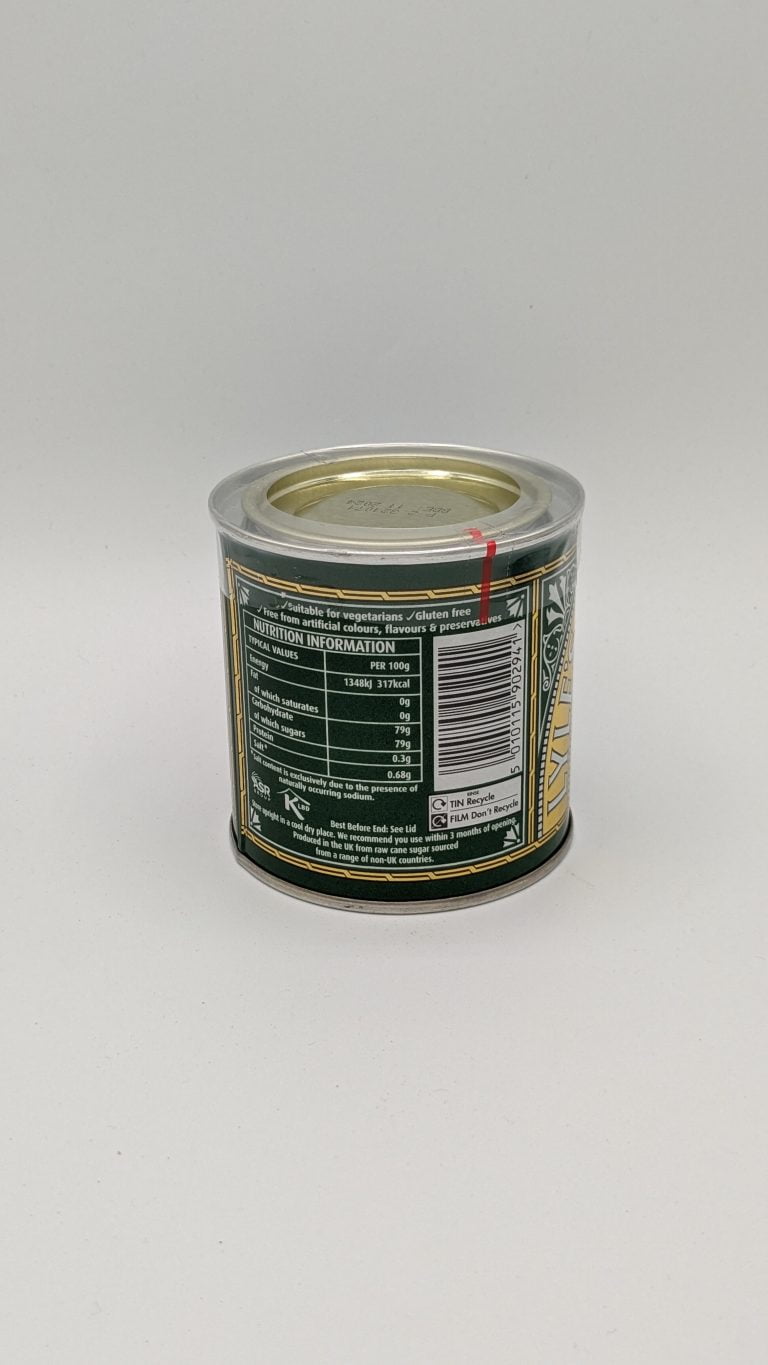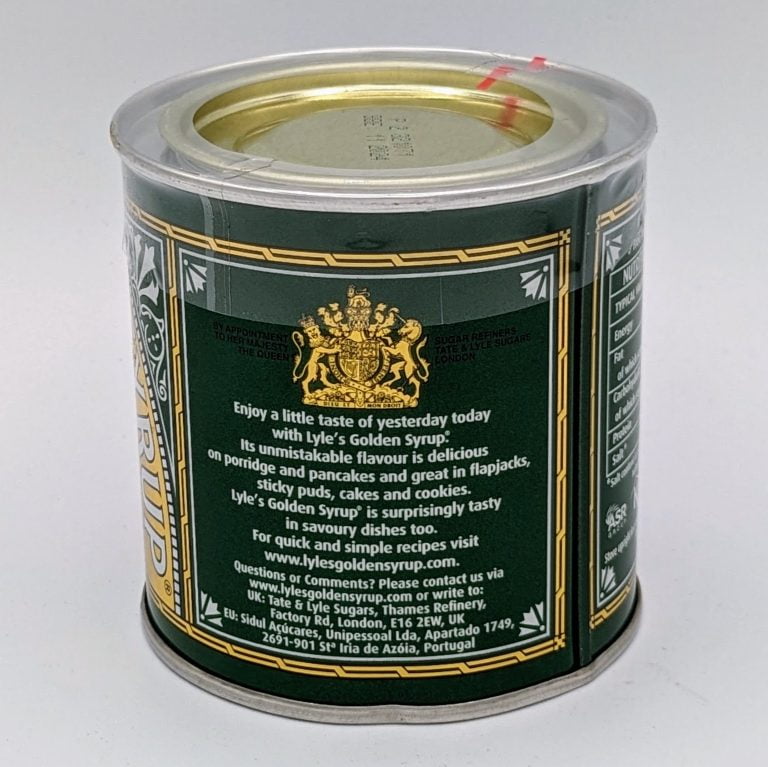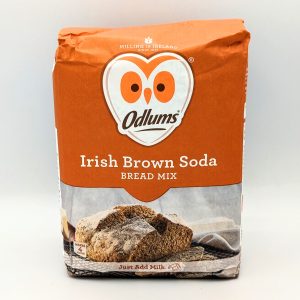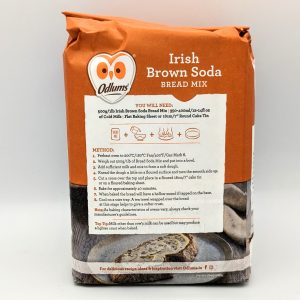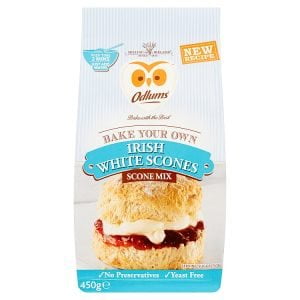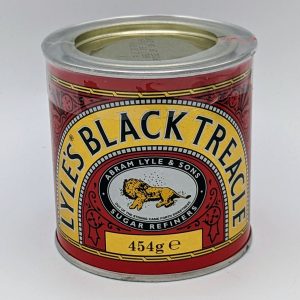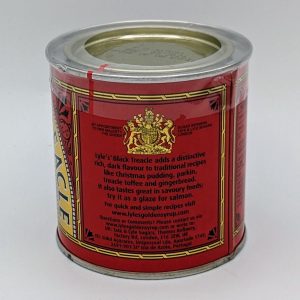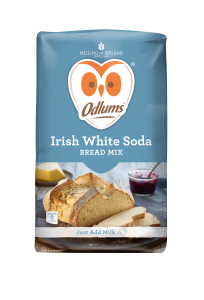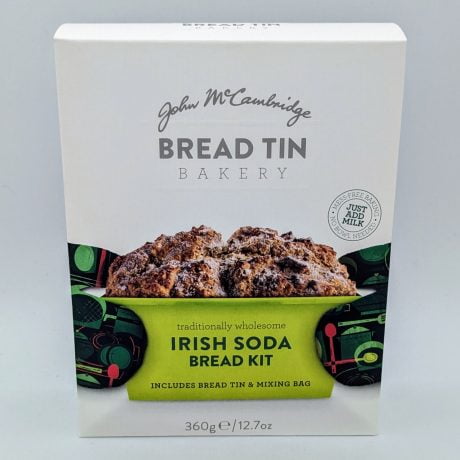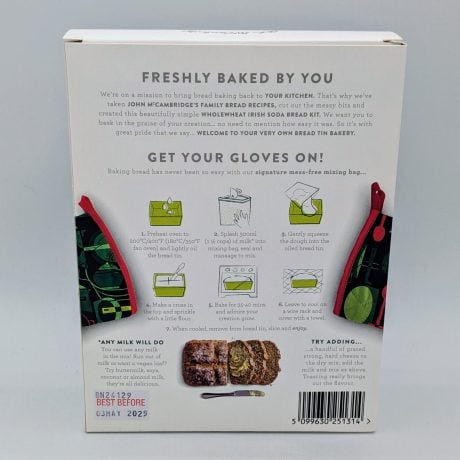Here we are with yet another product that you’ll find in most British households, yet has no real equivalent in Germany. Lyle’s Golden Syrup is a classic pantry staple with a unique and enduring charm courtesy of that iconic tin, which has changed little over the years.
We’ve wondered why this might have come to be, how a country can be missing something so basic from its culinary repertoire. Perhaps Germany just prefers (or can afford) to use honey. Our hunch is it’s a result of the British Empire colonising the kind of places that Germany never did, but we’re not sure!
What Is Lyle’s Golden Syrup?
Lyle’s Golden Syrup is a British sugar syrup, known for its distinct amber color and rich, treacle-like flavor. This iconic syrup has been a fixture in British kitchens for over a century, and its instantly recognisable old-timey packaging is known and loved by all. Having said that, we do wonder how many people have looked closely at the picture on the tin. It’s a reference to a story in the Bible, in which Samson comes across the rotting carcass of a lion he had previously killed in which a colony of bees had made a hive!
An unusual choice of subject for the packaging of a food product, to be sure, but a highly successful one. The design has remained unchanged for almost 140 years, and has been declared the world’s oldest branding by the Guinness Book of Records.
Where does Lyle’s Golden Syrup come from?
Like so many of our products, Lyle’s Golden Syrup traces its roots back to the late 19th century. It was first developed in London by the sugar refiners Abram Lyle and Sons, as a way to make a byproduct of sugar refining – treacle – into something sweeter and more palatable. The syrup quickly gained popularity not only for its taste and colour, but also for its versatility.
How is Lyle’s Golden Syrup made?
The key to its signature golden hue and rich flavour lies in its production process. First, sugar is extracted from sugar cane or sugar beet and refined to produce a concentrated sugar solution. The sugar solution is then heated, and an acid (usually tartaric acid) is added to invert the sugar into glucose and fructose. This step, known as inversion, is crucial in achieving the syrup’s distinct texture and flavour. The inverted sugar solution is heated to create a thick, viscous syrup, which is then treated with a carefully controlled amount of heat, which gives it its characteristic golden colour. After processing, the syrup is sealed in the iconic green and gold tins for distribution.
What is Lyle’s Golden Syrup used for?
Lyle’s Golden Syrup is a versatile sweetener that can be used in various culinary applications. Here are some common uses:
- Baking: It’s a favourite ingredient in baking recipes, particularly for items like golden syrup sponge pudding, flapjacks, gingerbread, and treacle tart. Its distinct flavor enhances these desserts, providing a rich, toffee-like sweetness.
- Glazing: Lyle’s Golden Syrup is also used to glaze baked goods, giving them a glossy finish and a hint of sweetness. It’s commonly brushed on top of pastries, bread, and even ham.
- Sweetening Hot Beverages: Some people like to treat themselves to a teaspoonful of golden syrup to tea or coffee as a unique and indulgent sweetener.
- Sauces and Marinades: In savoury cooking, it can be incorporated into sauces, marinades, or dressings to add a touch of sweetness and depth of flavor.
Lyle’s Golden Syrup is an essential addition to any good food cupboard, so add some to your order today!

